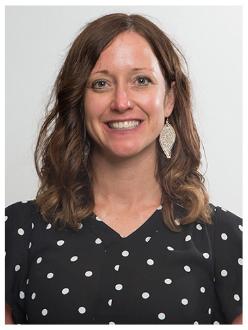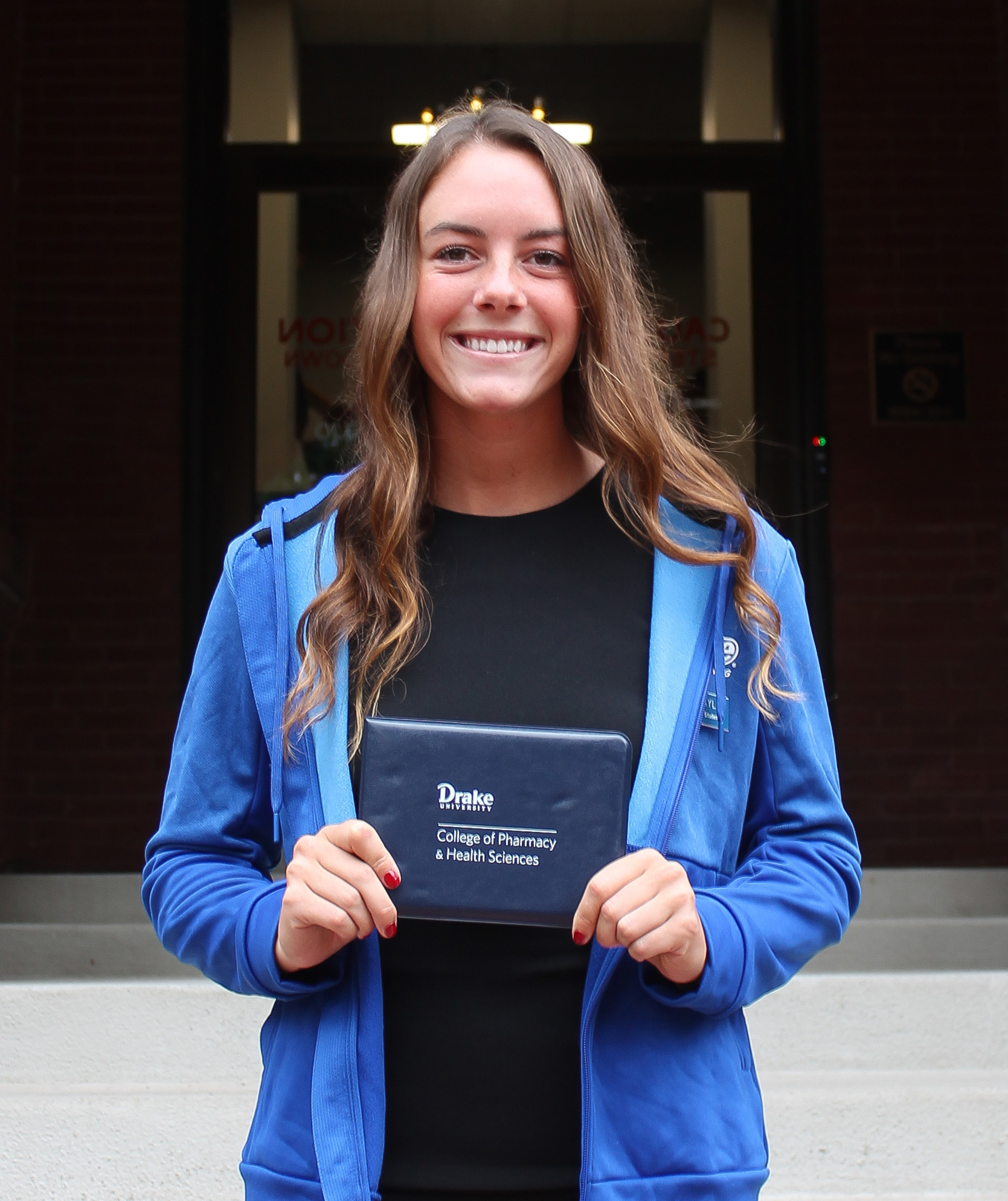Alisa Drapeaux
Meet Dr. Alisa Drapeaux, an Assistant Professor in Drake's Health Sciences program.
Dr. Drapeaux is also the Director of Health Sciences Experiential Education and co-chair of Drake's Pre-Med Committee. Prior to becoming a professor, Dr. Drapeaux practiced as both a licensed athletic trainer and a licensed physical therapist for many years. Her experience in athletic training allowed her to see her role as a physical therapist in a different way and provide her patients with the care they needed to get back in the game!
 Name: Alisa Drapeaux
Name: Alisa DrapeauxAs first an athletic trainer, and then a physical therapist, what role did you play in the health/well-being of people? How did you contribute to the health care team or to health care in general in these roles?
As an athletic trainer, I was able to assist with the evaluation and rehabilitation of athletes-on and off the field. As I became a licensed physical therapist, I was able to expand my knowledge in differential diagnosis, evaluation/treatment, neuroscience, and manual medicine. As an ATC and PT, I was able to use several “tools” to assist with patient care including preventative care, taping/splinting, return to play, and emergency care.
What first attracted you to athletic training and what ultimately led you to pursuing a career in physical therapy?
When I was a Freshman at University of Iowa, I had a strong desire to pursue a physical therapy career. However, it was my academic advisor that strongly encouraged me to look into the Bachelor of Science- Athletic Training program for my undergraduate degree. This was one of the best decisions I have made, as my degree in athletic training has only strengthened my career options and clinical skills as a physical therapist.
How did your experience as an athletic trainer help you become successful as a physical therapist? What did you learn as an AT that you would not have learned otherwise in PT school, but found really beneficial in your PT career?
Within the athletic training program, there are several aspects that assisted with strengthening my clinical skills as a physical therapist. These include the following: emergency care, taping, splinting, return to play, and functional testing. In orthopedic practice as a physical therapist, I used one of these skills at least daily in the treatment of several patients with different diagnoses.
What were some of your responsibilities as an AT/PT? What did a typical day/week look like for you?
As an athletic trainer and physical therapist in an orthopedic practice, I would typically treat 10-12 patients per day. I also had the opportunity to provide high school coverage as an athletic trainer during the late afternoons and evenings. During a typical week, I would work 45-50 hours in the clinic and then an additional 4-6 hours covering sporting events for a local high school.
What did you love about being an AT/PT? What was your favorite part about being in your position?
I have a strong passion to helping people, as well as being a member of the healthcare provider team and assisting each patient and/or athlete in meeting their goals. Medicine is fascinating and constantly evolving, which presents a challenge that I welcomed. As a physical therapist and athletic trainer, you have the opportunity to spend several hours a week with each patient/athlete and create strong, life-long relationships.
What is one piece of advice you would give to a student who is interested in pursuing a career in PT?
If you are interested in physical therapy, first schedule a meeting with me. I would love to meet with you to discuss potential opportunities in physical therapy and also the admissions process into PT school. I would make sure you start shadowing or observing early in your academic career to include SNFs, hospitals, and private practice to understand the several different occupational environments for a physical therapist. If you have any interest in orthopedics and/or sports medicine, then I strongly recommend pursuing your Masters in Athletic Training prior to your Doctor in Physical Therapy degree. It will assist you with your academic success in DPT school and strengthen your opportunity to be hired in a collegiate environment or orthopedic practice.
Now, as an educator, why did you choose to teach at Drake?
I had the opportunity to be Adjunct Faculty at Drake University for 3 years prior to accepting a full-time faculty position. Throughout my 3 years as adjunct, I was extremely impressed with the students, faculty and overall core values at Drake. The CPHS- Health Sciences program was evolving and growing, and I was passionate about assisting with the growth and to be able to offer a clinical background to the health sciences program. I am proud to be part of Drake University with its strong, positive reputation locally and nationally.
How does Drake help students achieve their career goals? What specific aspects of the academic experience will help them prepare?
Drake University provides a 12:1 student to faculty ratio that fosters a learning environment for each student. Drake has excellent resources to assist with student success to include: open door policy with faculty and staff, inter-professional education experiences, and much more. Also, within the Health Sciences curriculum, each student has the opportunity to participate in a 9-month internship their senior year in a healthcare setting. This allows the student to develop as a professional, participate in research and development of a manuscript, and create a network in the healthcare field.
Past Athletic Training Spotlights
Bridget Davidson (2022 MAT alum)
Alisa Drapeaux (Drake Health Sciences Faculty, Athletic Trainer)
Nate Newman (Drake MAT Program Director and Faculty)
Frankie Porter (2021 MAT alum)
Frankie Porter (student profile)
Delaney Taylor (MAT Candidate 2023)
Kayley Weiland (2022 MAT alum)


